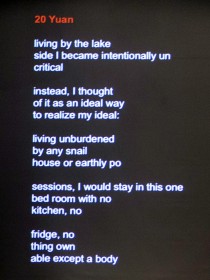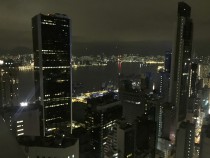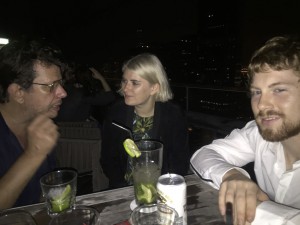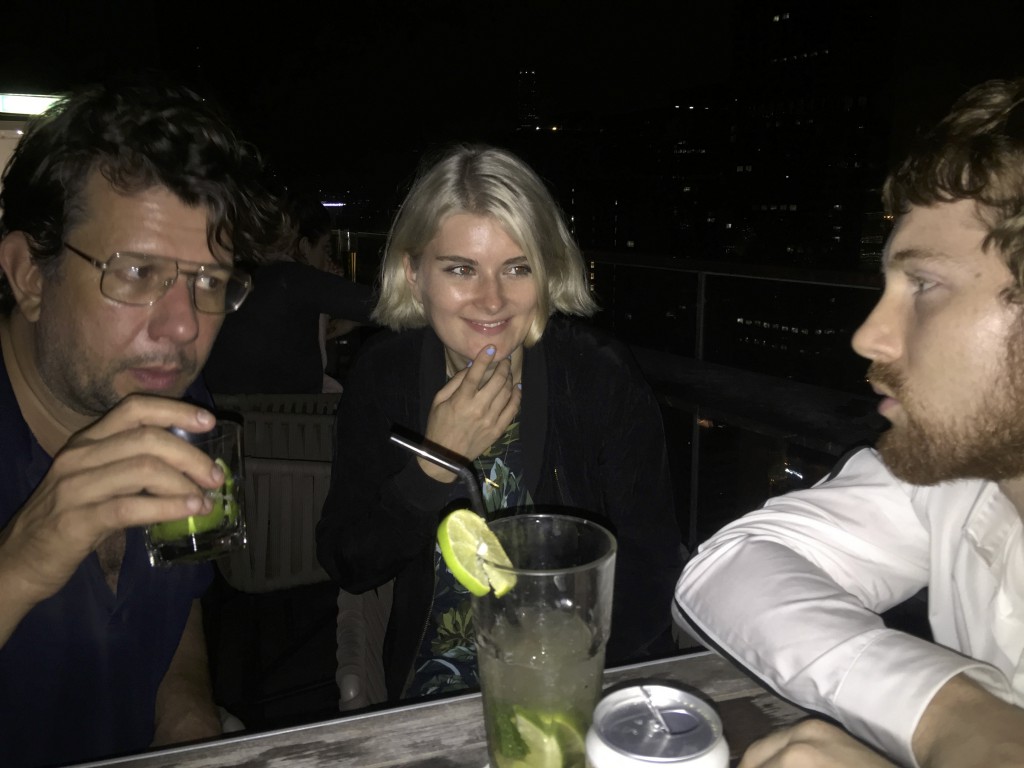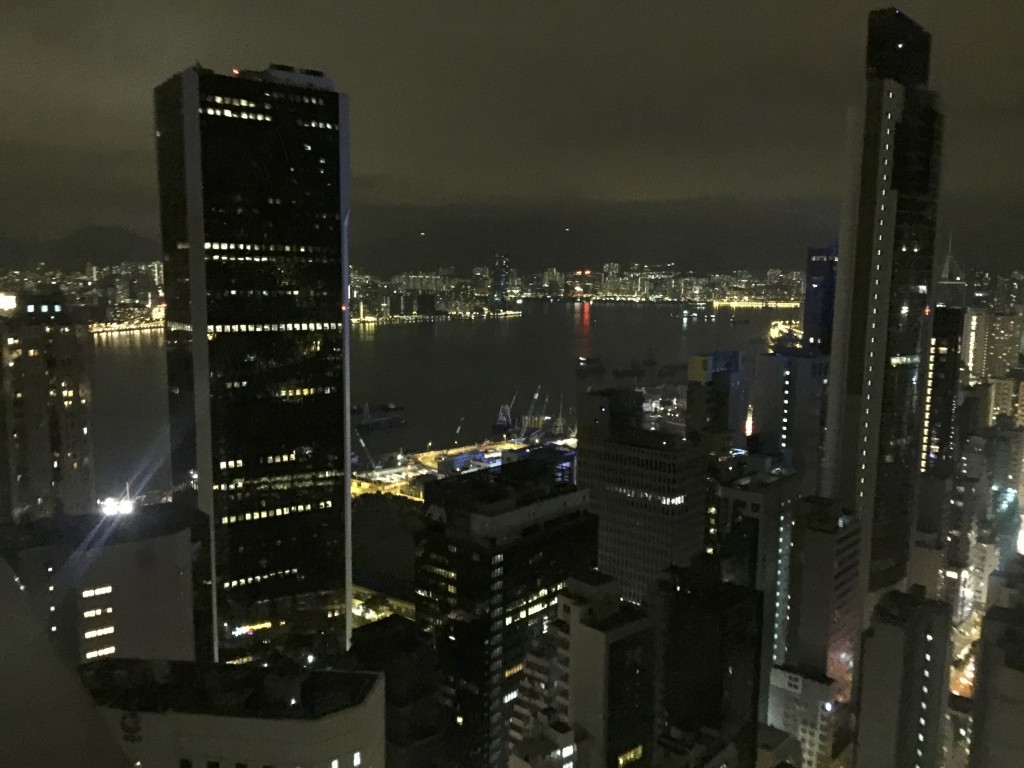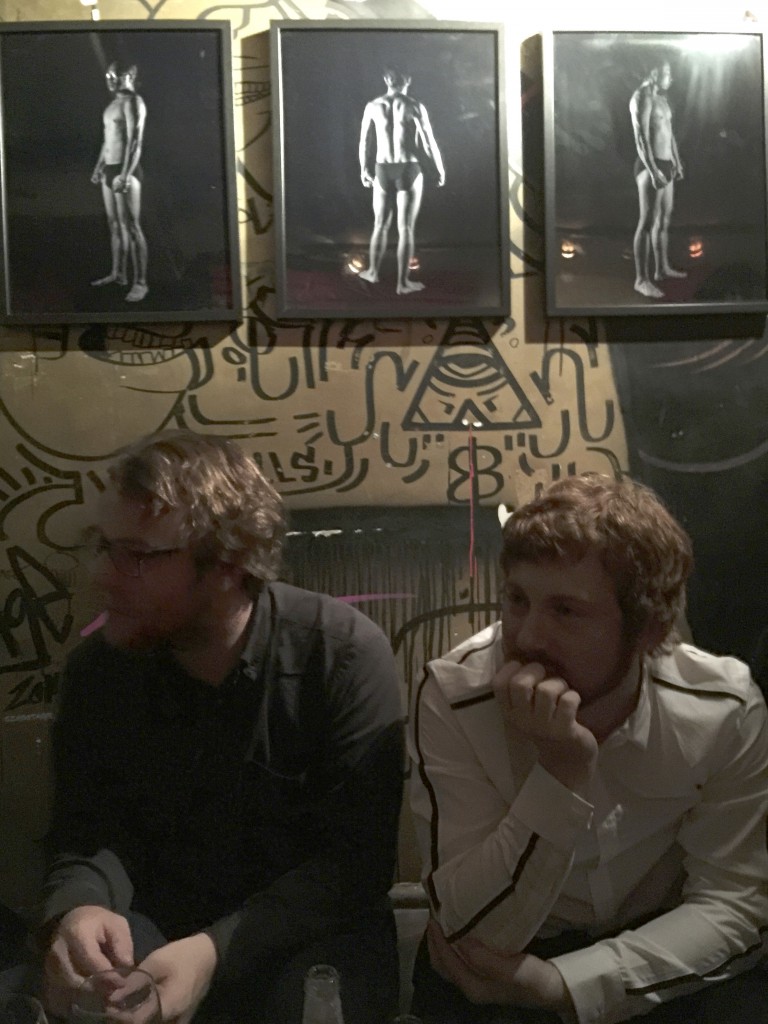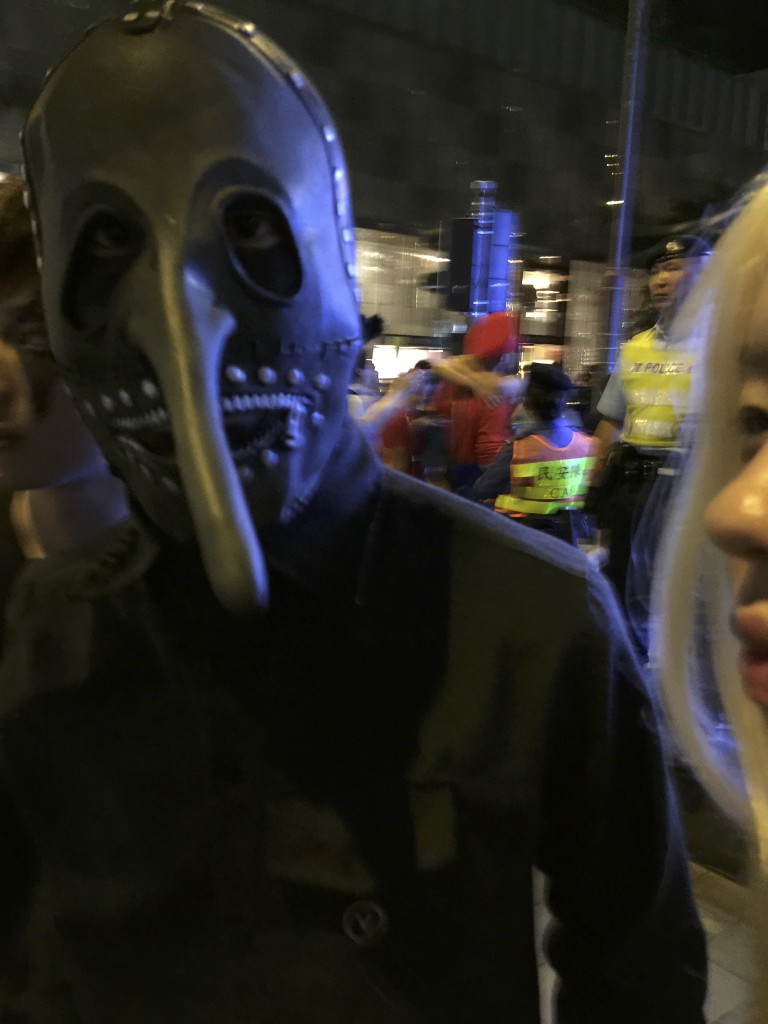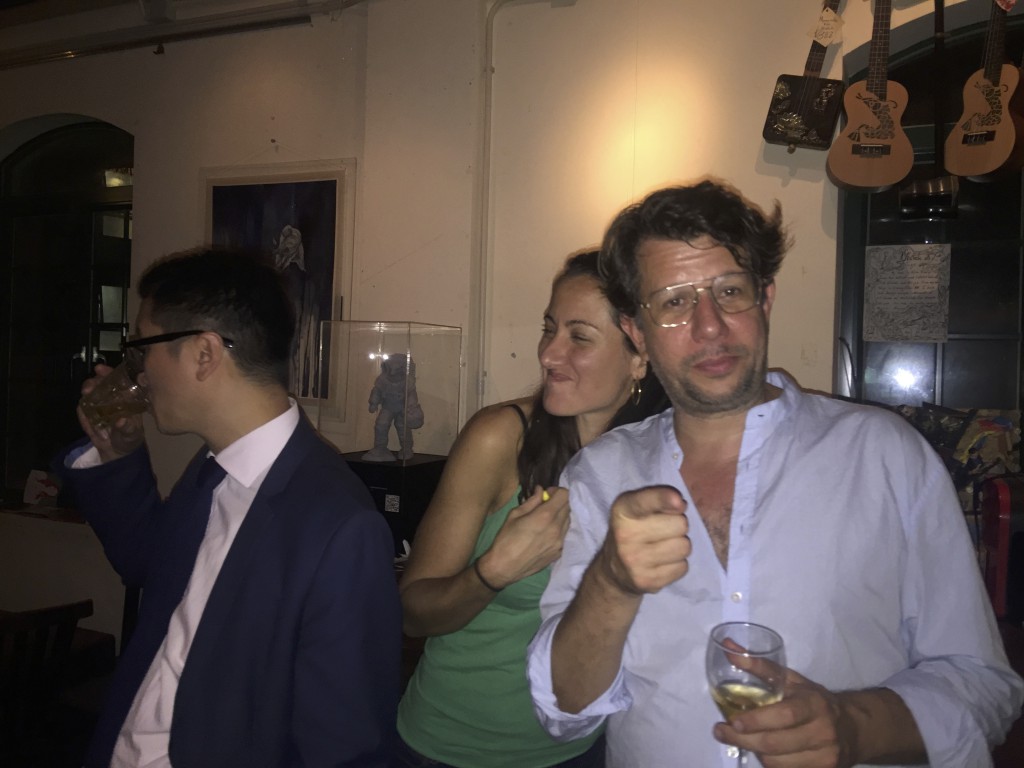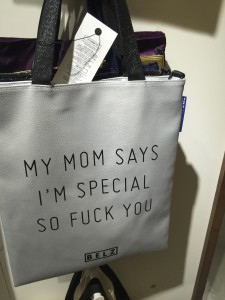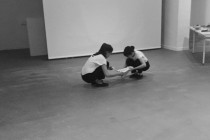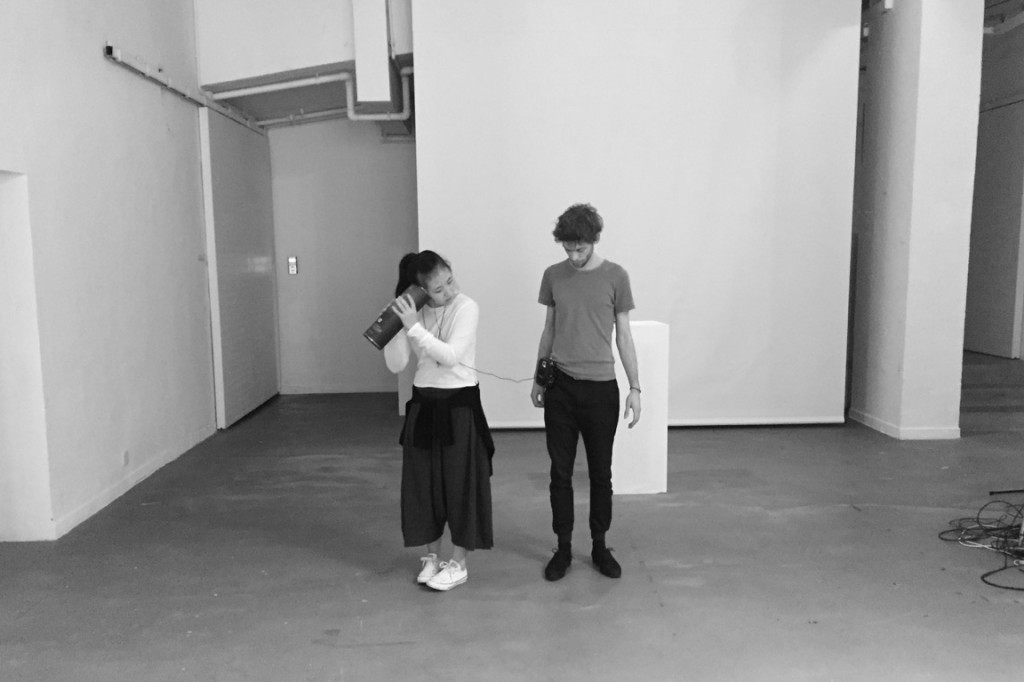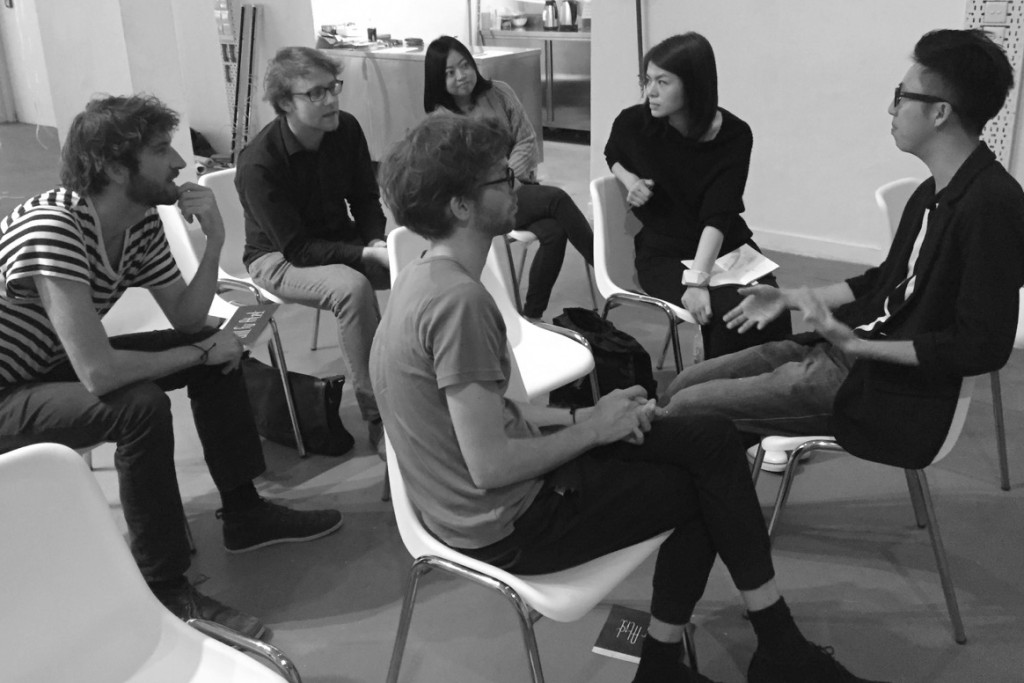Kategorie: Allgemein
Final presentation 1
Final presentation 2
BLOOM ROOM
BLOOM ROOM-BY AnaBruceCimon
by Jörg Scheller
Hong Kong is probably the worst place for inter- or multicultural romanticism. Whoever believes that cultures, for instance Western and Far Eastern ones, are necessarily distinct entities will be disappointed here. HK rather suggests that singularity and similarity might as well be the two sides of the same coin. Exoticizing and othering tendencies have a hard time in HK, notwithstanding the persistence of difference. Especially HK island is a genuine transcultural place. The „inter“ in interculturality presupposes that there are still at least two distinct cultures and a void between them. The prefix „trans“ refers to „beyond“ and „through“, hence „transcultural“ suggests that we can go beyond given understandings of culture, that we can move through cultures.
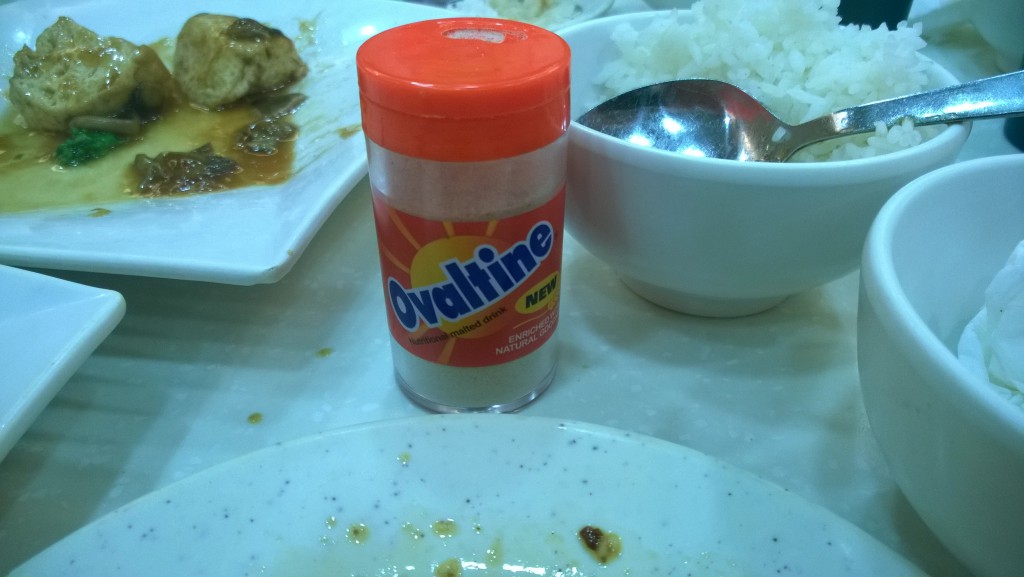 Colonial history, globalization, financial capitalism, and tourism have turned HK, using Homi Bhabha’s term, into a „third space“ beyond oppositional pairs such as „familiar and exotic“, „known and unknown“, „new and old“. What Kim Gordon writes bout HK in her autobiography Girld in a Band certainly still holds true: „Hong Kong was like nothing I had ever experienced before. […] I felt so overwhelmed by Hong Kong’s heat, chaos, clamor, and odors that I was convinced I would never—never—survive there a year.“ However, this experience is mitigated in manifold ways. At the airport, you get your Octopus Card which allows for fast and smooth payment anywhere in the city. You don’t get any stares in the streets as a white guy, you’re not being harassed. You float through the city easily via MTR. You always find someone who speaks English, globalization’s lingua franca. You discover some strange, but much more often strangely unstrange things: Ovaltine is one of them. (image 1) Or take this muscle car in Lockhart Road – a Ferrari just like any other Ferrari. With the slight difference that it seems to be a vegetarian or a Muslim one. (image 2). And how about this fountain on Statue Square? (image 3) It’s definitely a fountain, but the usual flow of water is inversed
Colonial history, globalization, financial capitalism, and tourism have turned HK, using Homi Bhabha’s term, into a „third space“ beyond oppositional pairs such as „familiar and exotic“, „known and unknown“, „new and old“. What Kim Gordon writes bout HK in her autobiography Girld in a Band certainly still holds true: „Hong Kong was like nothing I had ever experienced before. […] I felt so overwhelmed by Hong Kong’s heat, chaos, clamor, and odors that I was convinced I would never—never—survive there a year.“ However, this experience is mitigated in manifold ways. At the airport, you get your Octopus Card which allows for fast and smooth payment anywhere in the city. You don’t get any stares in the streets as a white guy, you’re not being harassed. You float through the city easily via MTR. You always find someone who speaks English, globalization’s lingua franca. You discover some strange, but much more often strangely unstrange things: Ovaltine is one of them. (image 1) Or take this muscle car in Lockhart Road – a Ferrari just like any other Ferrari. With the slight difference that it seems to be a vegetarian or a Muslim one. (image 2). And how about this fountain on Statue Square? (image 3) It’s definitely a fountain, but the usual flow of water is inversed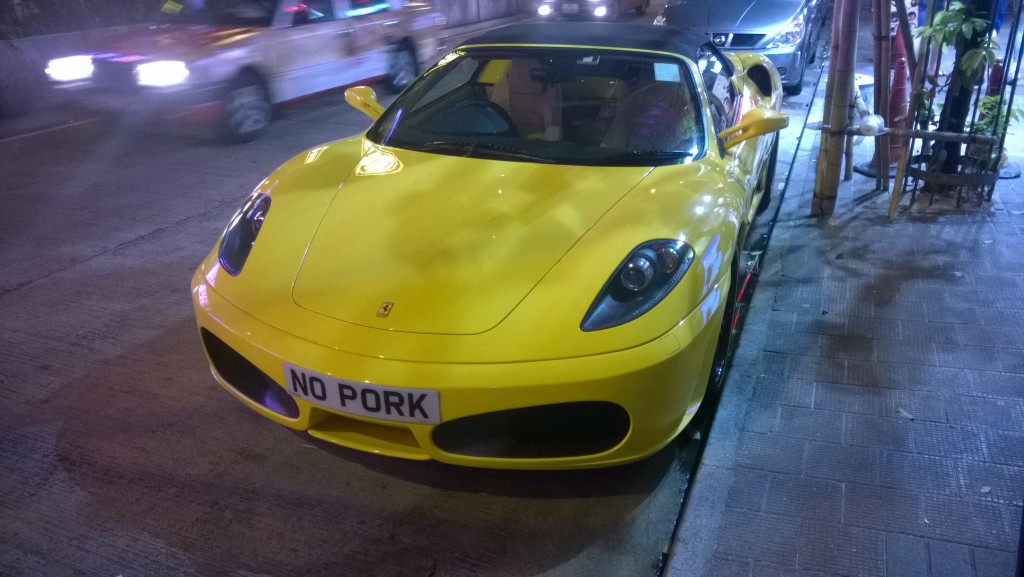
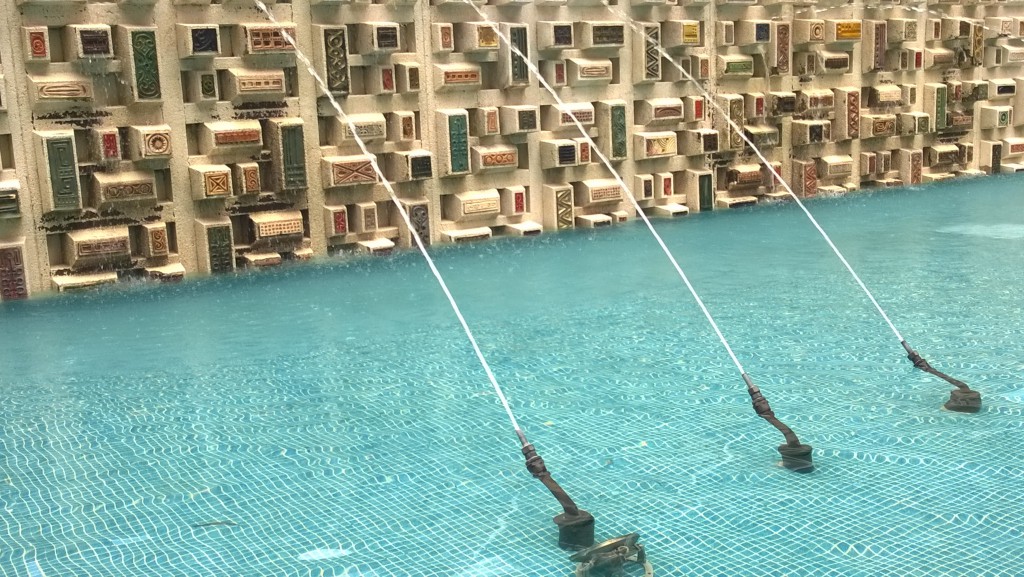
If transculturality means – and I subscribe to this – that „the differences no longer come about through a juxtaposition of clearly delineated cultures …, but result between transcultural networks, which have some things in common while differing in others, showing overlaps and distinctions at the same time“ (Wolfgang Welsch), then HK is indeed the genius loci for our program „Transcultural Collaboration“. HK is not about a (friendly) „clash of civilizations“ (Samuel P. Huntington). Instead, it has developed into a hybrid in the sense of Nikos Papastergiadis – „not confined to a cataloguing of difference. […] Hybridity is both the assemblage that occurs whenever two ore more elements meet, and the initiation of a process of change.“ Papastergiadi’s definition of hybridity as an „energy field of different forces“ is at the same time a suitable definition of HK.
That said, in my lectures in the Connecting Space during my two-week stay, I stressed that we need to transcend the narrative „Asia meets Europe“ and that we should leave behind the focus on ethnicity which has sneaked into the contemporary biennalized art system „through an unspoken policy of integrated casting“ (Kobena Mercer). Instead of focusing on cataloguing and trying to overcome alleged or factual cultural differences, we might also explore transcultural aspects in that which appears to be monocultural.
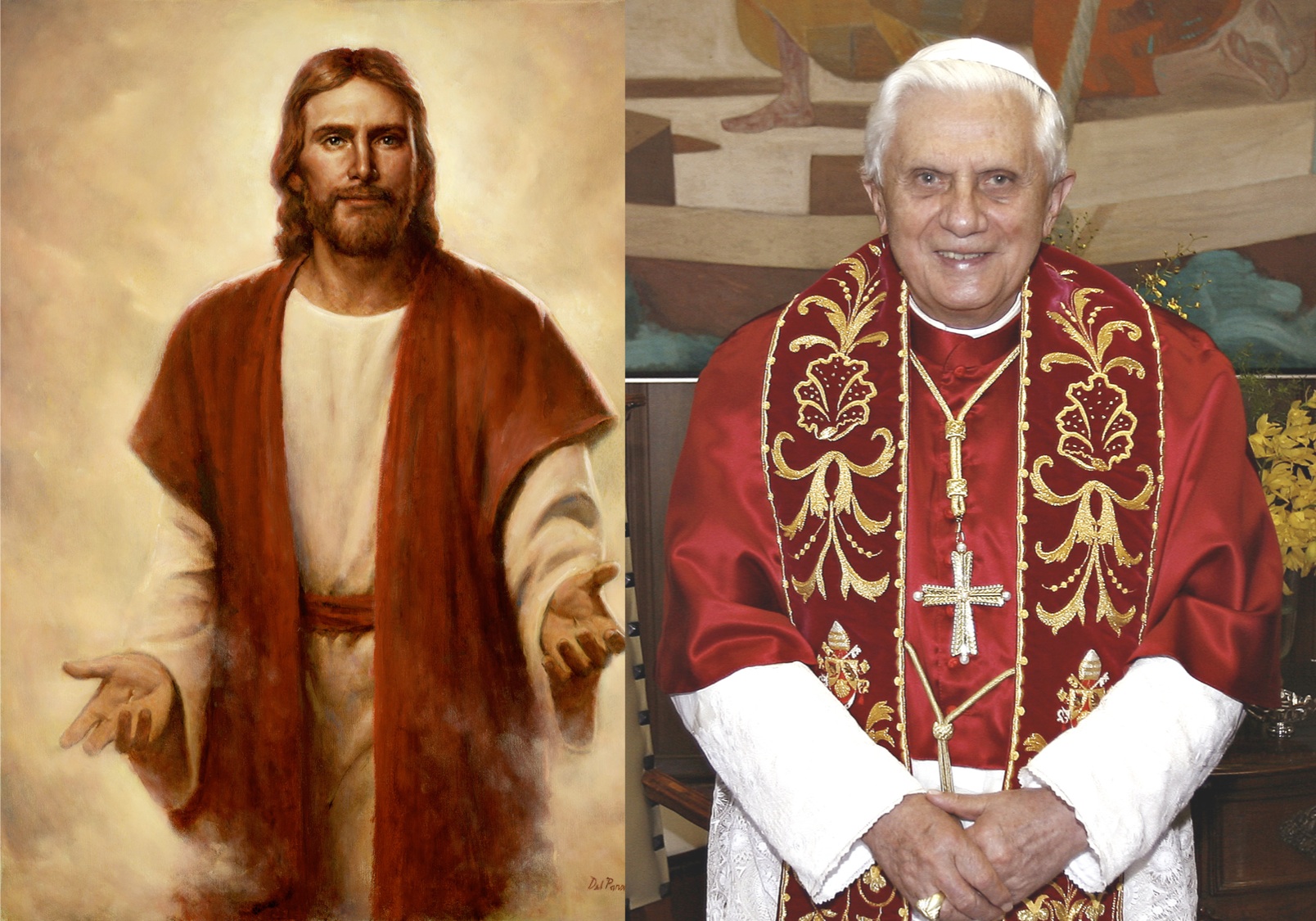
 For instance Christianity. The Catholic church is inherently transcultural since, in the course of its development, it has incorporated a broad range of heterogeneous elements. If you compare Jesus Christ, a jobless, long-haired Hippie savior, with former Pope Benedict, a spooky head of state wearing Prada shoes, you get what I mean. (image 4)
For instance Christianity. The Catholic church is inherently transcultural since, in the course of its development, it has incorporated a broad range of heterogeneous elements. If you compare Jesus Christ, a jobless, long-haired Hippie savior, with former Pope Benedict, a spooky head of state wearing Prada shoes, you get what I mean. (image 4)
Or think of Motörhead. (image 5) At first glance, this is the monocultural band per se. In fact, however, it is a fascinating hybrid of the interconnected but highly different (sub)cultures of blues, rock’n’roll, punk rock and heavy metal. Learning from HK means becoming aware that even while listening to „Ace of Spades“, one embarks on a journey across an archipelago of singularity and similarity, interconnectedness and difference. Thus, transculturality precedes and transcends the revival of ethnicity in globalization.
Jörg Scheller, art historian and head of BA Photography, Zurich University of the Arts, Switzerland was lecture guest at the Lecture Series on Transculturality.
Read more about his lecture Cosmopolitan Rhapsody – Transcultural Tendencies in the Music Video Genre here
Exploited
exploited_by AnaBruceCimon
BLOOM ROOM TRAILER
Made by AnaBruceCimon.
Mission Statement
Mission Statement
Starring: Sergeant Dick Ta Tour
Private Ban Ana
Private Finix
Private Lee Liu
the Sergeant only shouts, never speaks or lowers his voice
the three Privates have no real tension in their bodies, they only wake up/fight this when they speak,
when the sergeant is on they seem bored or kind of numb
the scene has to take place in Hong Kong or Zürich,
otherwise the transcultural aspect could be endangered
also if the Sergeants parents could be ethnically mixed the gods would be pleased
Sergeant Dick Ta Tour (S): Company! State your name, nationality and major discipline.
Be aware that a possible visitor knows nothing about your process, so try to express yourself audience friendly and clearly. You maggots got me?
Ban Ana(B), Finix(F), Lee Liu(L): Sir, yes Sir!
B: Ana “Banana” Negrea. Romanian. Stage Design.
L: Xiaobin “Lee” Liu. Chinese. Fine Arts in Creative Media.
F: Simon “Finix” Dietersdorfer. Austrian. Composition for Film, Theatre and Media.
S: Bullshit! I can’t hear you. All of you are Artists.
(salutes to the sky) No boarder, no Nation – Trancultural Collaboration!
(back to the company) Apply your working method you crumbs, now!
L(very slowly): Well…sir, at first we want to try different methods of research and work. We define ‚em together on monday and develop ‚em throughout the week.
Could be a theatre scene…like this. Just messin‘ around. Food for thought, yeah. Still we want to be able to change ‚em, stay flexible you know what I am sayin‘. Since are a group of people with very “special” needs and loads of ideas.
We’re very sensitive, also…
F(highly nervous and stressed): SiryesSiryesyesyesSIR! I need to relaaaaaax. (pauses, heavily breathing, then suddenly starts singing) I want to work.Work.Work.
Work until something comes up.
B(laughs): I am stressed, but also happy. When the others are happy I am relaxed, happy. I mean stressed. Yes. No.
S: Bullshit! I can’t hear you!
Private Liu!!! I heard you are missing two days a week, because of other “courses” you have to attend.So are you gonna lay down and cry like a little baby or how the hell are you gonna deal with this situation?
L(even slower): Easy…Sir.
(Pause)
B(shifts fast between desperate and very motivated): I. Them. We. We figured this one out, Sir.
Finix and me will also work individually on these two cursed days.
We only bring in our ideas when all of us are united. Then we select the best of them. Together. (laughs) Like this everyone is up to date at the same time(fast) and we have dropbox.
F(speaks without a pause): BUT!Butbutbutbutbutbutbutbuuuuuuuuuut:
we don’t understand this as a free pass to relax, right? I mean of course we wanna relax. And we will, I promise. We can also relax while working, I swear. Actually I am relaxed.
Whoa, did someone turn off the air condition, I am really hot.
L: Plus….Sir. Its not true, that I miss two whole days (long pause, he looks sequential at everyones face). For the second one we invented the idea of (raises his eyebrows) “mandatory coffee”. From 10h to 12h we will make a plaaan. An Art Plan. Like Planned Art. Ouh yeah.
F(nearly hysterical): And SirohSirohSir we want to finish our work one week before the due date. Yes I am serious one week before the final presentation. Actually that wasn’t my idea, but I am okay with it. I really am. One hundred percent.
S: Bullshit! I can’t hear you! What’s your Topic? Frame a key question! Don’t sleep on this.
Go!Go! Go!
L(quick): Bananas! Eggplants! Bananiaran Eggplants.
F: We’re focusing on Humor, Sir!
S: Thats Bullshit!
F: Exactly, Sir.
S: Bullshit, I can’t hear you.
F: That’s right, sir(Pause) we’re focusing on-
S: -Bullshit-
F: Correct!
S: Bullshit, speak up!
F:(with a higher voice): Precisely, sir; Bullshit-
S(exploding): -WHAT?
F(increasing volume and speed): Humor, Nonsens, Absurdity, Humbug, Rubbish, Poppycock, Piffle, FlimFlam, FiddleFaddle, Malarkey, Flapdoodle, Bushwa, Tomfoolery, Bosh, Folderol.
during this listing the sergeant dies of an heart attack & so he gets reanimated by the three privates,but the scene goes on without any comment about it
S: I thought your work was gonna be about „Plants. Plants. Plants. Plants. Plants. Plants. Plants. and Personalities and Identities“.
B: Well, that was just some sort of „Topical Island“.
S:(on his knees) NOOOOOOOOOOOO! I thought you had framed your questions, narrowed down your topic. (starts to cry, still shouting).
God, how could I be so wrong. I truly believed in you. Please don’t let me down.
L: Relax!
F: I AM RELAXED!
L: Talkin‘ to the „Sergeant“ over here. We never left this. Still workin‘ on it. But we also got:
(Pause, then raised eyebrows) Empathy.
B: When and why do we start to feel empathy for something?
F: Like a plant!
L: How can we be connected to something that is not „alive“ in the first place?
F : Like a plant!
B: What defines something as „alive“? Consciousness? How do we know something is aware?
F: Like a plant!
L: Furthermore, when and why do emotions like Sadness, Happiness, Aggression and Fear kick in?
F: Plant!
B: How can we suggest, provoke and at the same time direct them? Compose them. Musically,visually.
F: P-
S(has tears in his eyes, salutes): Those(swallows) are framed questions! Sweet sweet narowed down questions. (reawakens) Enough of this Bullshit, you airheads!
Tell me straight: like the devil would knock on your mommas bedpost. Where the heck do I find Transculturality in this mess you callin‘ a group?
L(again very slow): Everywhere.(pause) I mean… Sir. Open your eyes. What do you see?
An Austrian, a Romanian and a Chinese. Doing an „Art“ project in Hong Kong. How can this not be transculturall? I think even if we tried not be transcultural we’d still end up exchanging intercontinental juices, in an intellectual way if you know what i am sayin‘.
S: Bullshit raised to the second power! I can’t hear you!
(counts in for singing)
Cultural Collaboration
2x
Feels sometimes like constipation
2x
But you just need to let it flow
2x
Narrow down the way to go
2x
And always, always keep in mind
2x
Your topic has to be defined
2x
Chorus:
stressed, relaxed, organised,
we are
3x
We are
Artists
S: Alright now! Step off!
About the working in progress of “The Net”
Sketch for a start
After the experiment on ABC Human connection, the group began to combine all the interesting responses and transformed the final performance into an interactive piece that can only be complete with the present of audiences.
The work started with sketches and talks of childhood memory.
Like a child inventing games to play with new friends, we searched for simple touch to bridge people, finding what appeared to be the most gentle and easiest way to start connection, and set our foots in the playfulness of Hong Kong.
We had the idea of having the performance in Clockenflap, a music festival that we can involve as many audience we can. The idea soon adjusted as we realized perhaps it would also be interesting to develop the experiment first in Connecting Space where we were able to control the situation.
Somehow these two phrases became the major key words of the performance. We had our meeting under the blanket, and prepared the tryout performance of the rope in park with elementary school children. How a child play with flashlight under the blanket in the middle of the night, telling stories to their siblings or friends? How exactly did we play? Hong Kong was the tireless energy that pushed and embraced us. There were moments when the energy seemed to be overwhelming, suffocating even like a blanket on the face, strangling like a robe on the chest. Still there were also moments of pure naïve, and Hong Kong gave you whole freedom to play. The contradiction of city as a playground or a gigantic concrete jungle are the two contradictions we began to rationalize in the performance, and a crucial dynamic for us to come around.
Installation, projection, all the visible and the invisible.
Up to the final two weeks, we had the general idea of how to play with the robe and the blanket. The problems now are: How shall we start? What comes first? Will the changes interfere with our objectivity? These were the question concerned us the most, and soon turned to the biggest barrier to cross.
To overcome the situation, we started with installing the blanket on the ceiling, adjusting the light, trying the rope with various approach, directing projection and music, and figuring out a ultimate form that was convincing enough for the group to reason with.
A Challenging collaboration that brings pepper to the work
Due to different personality, age, experience, discipline, interest on topics, the collaboration went on to a bumpy road, which means having fun and fight always had their part simultaneously during discussion and preparation stage. Our controversy continued to the last minute before the final performance, and it’s hard to say whether we had really settle with all the issue. Still, without doubt, we all learned and inspired from our work, and could be a starting point for future adventure.
Final. The Net[t] – Reactive Performance
Overwhelming.
Driven by the city’s setup for economy and money.
Time to look up.
Join the Net.
_
The Net[t] proposes an immersive experiment on our reflections about the topic of Human Connections.
_
by Wu Jiaru, Nicolas Müller, Li Shang-Chiao, Liu Siyuan, Isabelle Sprenger and Larissa Holaschke
_
Monologues
_
Zahlreiche schlaflose Nächte, in der in der Bar unten am Eck immer etwas los war. Von meinem Bett direkt am Fenster habe ich nach anderen Schlaflosen Ausschau gehalten. Ich habe in ihre Wohnungen gespäht, und mir vorgestellt, was sie denn machen. Wohnen Asiaten in Neonlicht? Und Expats wechseln die Glühbirnen aus zu warmem Licht?
Das Blinken der grellen Leuchtreklame. Ich starre lange in die Lichter, gefangen in meinen 8m2 inklusive Bad.
Die Stunden vergehen während ich in die Häuserschluchten schaue. Die Sonne geht auf. Der gleiche Raum, der gleiche Ablauf.
Ich habe meinen Nachbar nie zu Gesicht bekommen. Höre wie er, oder sie, jeden morgen um 8:30 die Zimmertüre hinter sich zu zieht, dann am frühen Abend kurz heim kommt, und gegen 23:30 die Türe aufschliesst und danach die Dusche aufdreht.
Am Anfang war ich noch neugierig. Jetzt, hoffe ich der Person nicht mehr zu begegnen. Ist das nicht komisch.
Im Treppenhaus grüsst man sich nicht, ein „Hallo“ ist unangebracht. Am Eingang zur Metro jedoch werde ich begrüsst: „No metallic Balloons“.
by Larissa Holaschke
_
Where is the ‘trans’ in Transnationalized Popular Culture? The case of Korean Wave
Lecturer by Dr Leung Yuk-ming Lisa
Associate Professor, Department of Cultural Studies, Lingnan University Hong Kong
Korean wave has taken East Asia and the world by storm: ‘You from the Stars’ (Korean drama), Gangnam Style, and of course boy and girl bands, have been topping the charts in East Asia, and have found their in European and American markets like never before. While many question the uniqueness of K-pop, others defended the authenticity of some musical elements as ‘Korean’. This brings back an age old question: how do popular cultures travel across cultures? Does the local flavor play a part in it, and how much? Where is the ‘Korean’ in the Korean wave, and how much does it matter? In this lecture, I shall try to reinvestigate notions such as ‘cultural odour’, ‘cultural discount’ to see how Korean wave could be so successful in this network era. Using the case of Korean wave, we will question the different aspects/ layers that globalized popular culture interplays with the local, by ask the following: i) the ‘flow’ of popular culture as mediation – how does popular culture travel? ii) impact of Korean wave as a brand on geo-politics, and social movements. Eventually I shall discuss the use of popular culture, locally and globally. At the end of this session, we can gain a new insight into the critical mapping of global popular culture, everyday life, and politics.
Lisa Y.M. LEUNG is Associate Professor at the Department of Cultural Studies in Lingnan University. Her main research interests are television and journalism studies, gender and communication, media globalization, and discourses of multiculturalism. One of her recent research focuses on the flow of media and cultural products across Asia, and (social) media and political participation. Her publications cover a range of topics including online (news) media and social movement, transnational reception of popular cultural products across Asia, and the cultural negotiation of ethnic minorities in Hong Kong. She recently published Understanding South Asians in Hong Kong, the Chinese translation of which will be published in 2016.
Thursday, November 5 – 7pm
Connecting Space Hong Kong
G/F, 18-20 Fort Street, North Point, Hong Kong
Creative Migration: ‘to emigrate inwardly’
Lecturer by Ouyang-Yu
Author, Melbourne/Shanghai
‚Migration for Good, for an Eternal Étranger‘, a topic Ouyang Yu will be talking about in which he’ll describe his experience as an Australian citizen living and teaching in China where he was born, how his writings are censored in both China and Australia, for the similar reasons of unmarketability, and how he lives as a poet and novelist writing in two languages in two countries, with English unpublishable in China and Chinese unpublishable in Australia, or only to a very limited degree.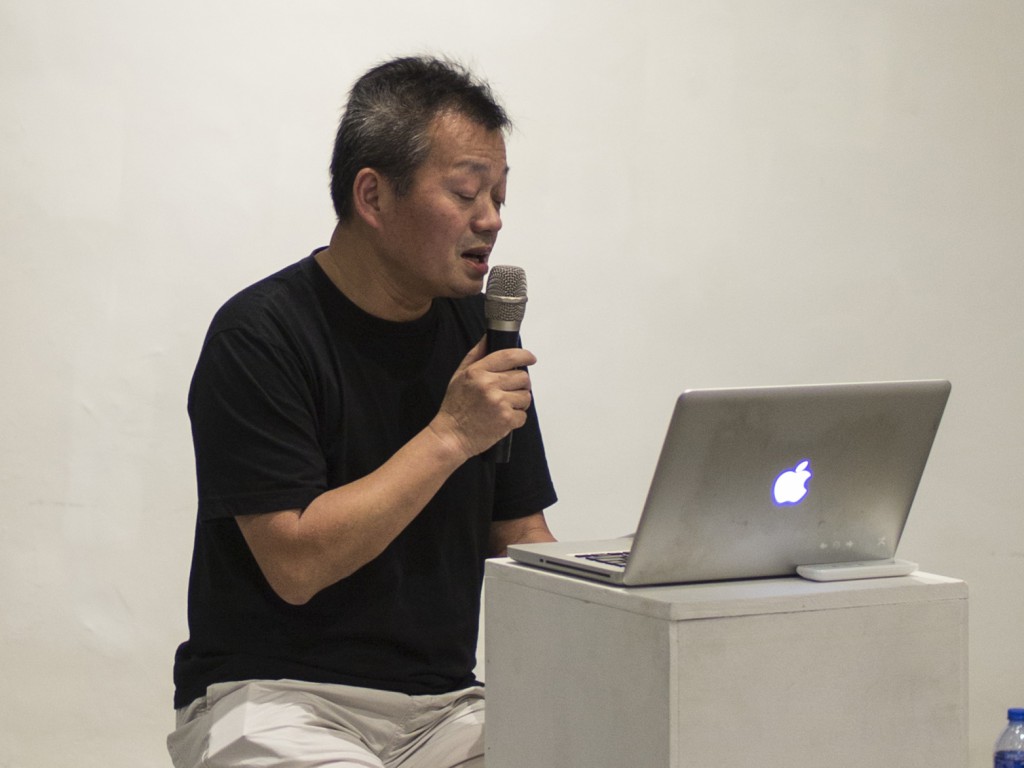
Ouyang Yu, born in Huangzhou, Hubei, in the People’s Republic of China, completed an MA in English and Australian Literature in Shanghai and worked as an interpreter, translator and lecturer in China. He came to Australia in 1991 to complete a PhD at La Trobe University, Melbourne, on the representation of the Chinese in Australian fiction (awarded 1995). He writes in both English and Chinese. Best known for his poetry, he has also written fiction and criticism in both languages, and has translated over a dozen major Australian literary texts into Chinese.
Ouyang’s best-known works in English are his poetry collections Moon Over Melbourne and Other Poems (1995, 2nd revised edn 2005), Songs of the Last Chinese Poet (1997, short-listed for the 1999 New South Wales Premier’s Literary Awards) and Two Hearts, Two Tongues and Rain-Coloured Eyes (2002). His first novel, The Eastern Slope Chronicle, was published in 2002. He is the founding editor of Otherland, the first (and only) bilingual journal of Chinese-Australian writing. He has won a number of major grants for fiction, non-fiction, poetry and translation.
Thursday, November 12 – 7pm
Connecting Space Hong Kong
roof tops
ground tops
Cultural Identity in the World Today
Lecture by Gordon Mathews
Professor of anthropology at the Chinese University of Hong Kong
Who are we? Today two contradictory discourses shape our cultural identities, those of the state and of the market. The state tells us that we should love our country, while the market tells us that we should love money and choice. Both of these forces are based on lies, but because we are immersed in these discourses, we cannot easily see this. Hong Kong is unusual in the world, in that it has long been based not on the discourse of the state, but only on that of the market.
This accounts for some of the political turmoil in Hong Kong in recent years. Are Hong Kong people, in their inability or refusal to follow the discourse of the state, blind as the rest of the world is not, or are they seers in a world that is blind?
Gordon Mathews is a professor of anthropology at the Chinese University of Hong Kong. He has written and edited various books, including What Makes Life Worth Living: How Japanese and Americans Make Sense of Their Worlds (1996), Global Culture/Individual Identity: Searching for Home in the Cultural Supermarket (2001), Hong Kong, China: Learning to Belong to a Nation (with Eric Ma and Tai-lok Lui, 2008), and Ghetto at the Center of the World: Chungking Mansions, Hong Kong (2011).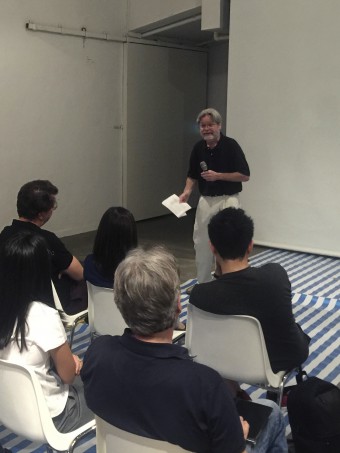
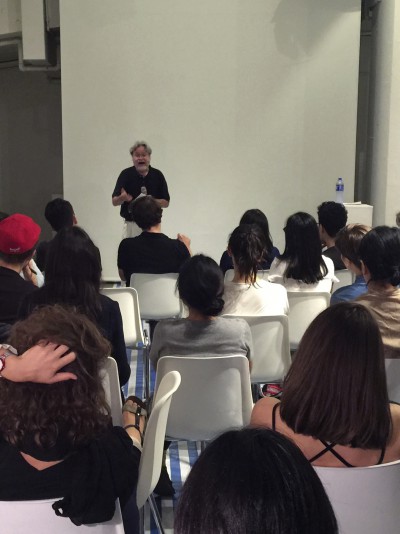
Thursday, November 5 – 7pm
Connecting Space Hong Kong
Connecting Sound Workshop
Workshop by Brandon Farnsworth, Music Curator
Through a mix of presentations and performances, the Connecting Sound Workshop offered a space for artists working in various performing arts fields to come together in a relaxed atmosphere and share practices, ideas, and experiences. It offered a space that promoted unexpected encounters while placing no emphasis on finished products, preferring rather to spill into the eternal flow of practice.
Several moments during the workshop stood out because of their surprising but somehow also inevitable nature. These intuitive moments were in retrospect inexorable, though could never have been premeditated. It was precisely this nature that lent them their significance, and which hopefully could inflect positive change in the practices of the participants.
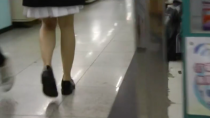
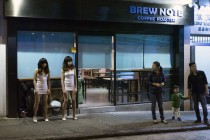
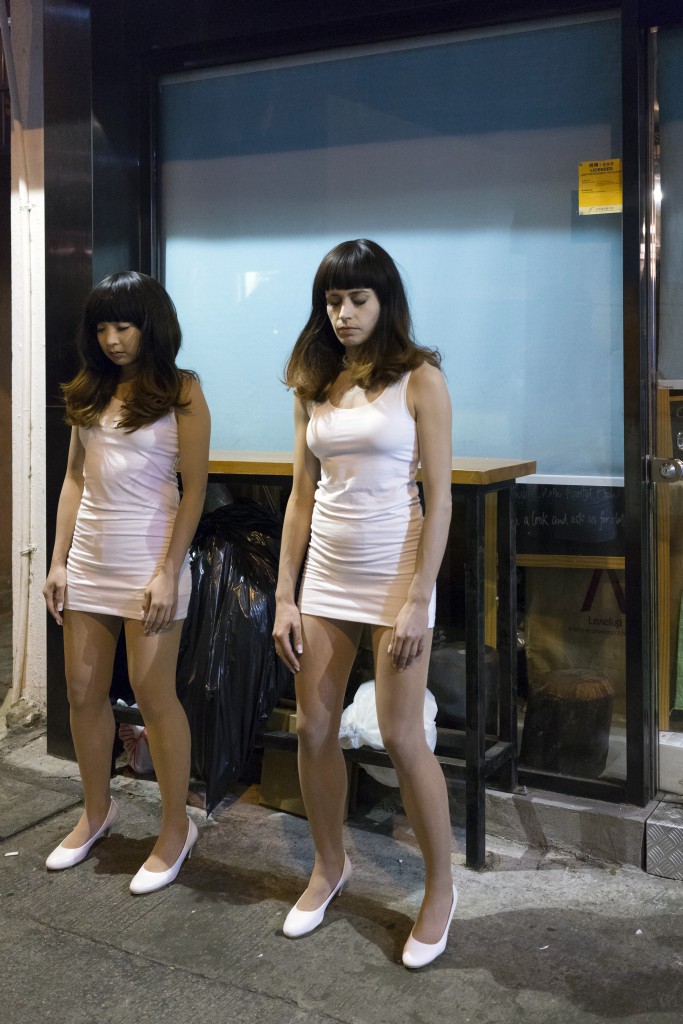
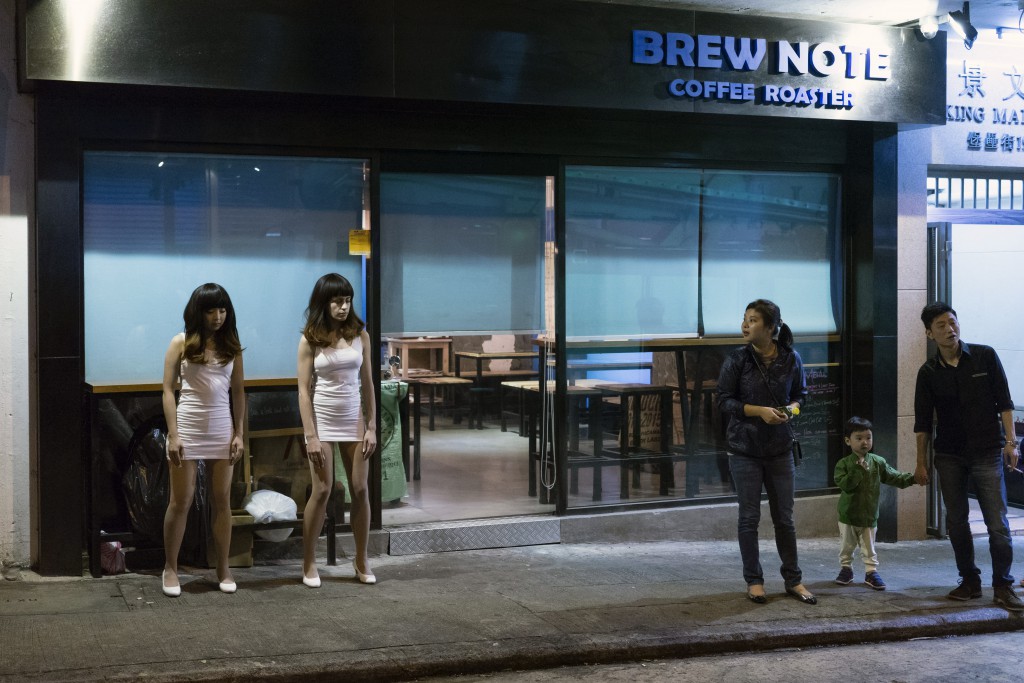
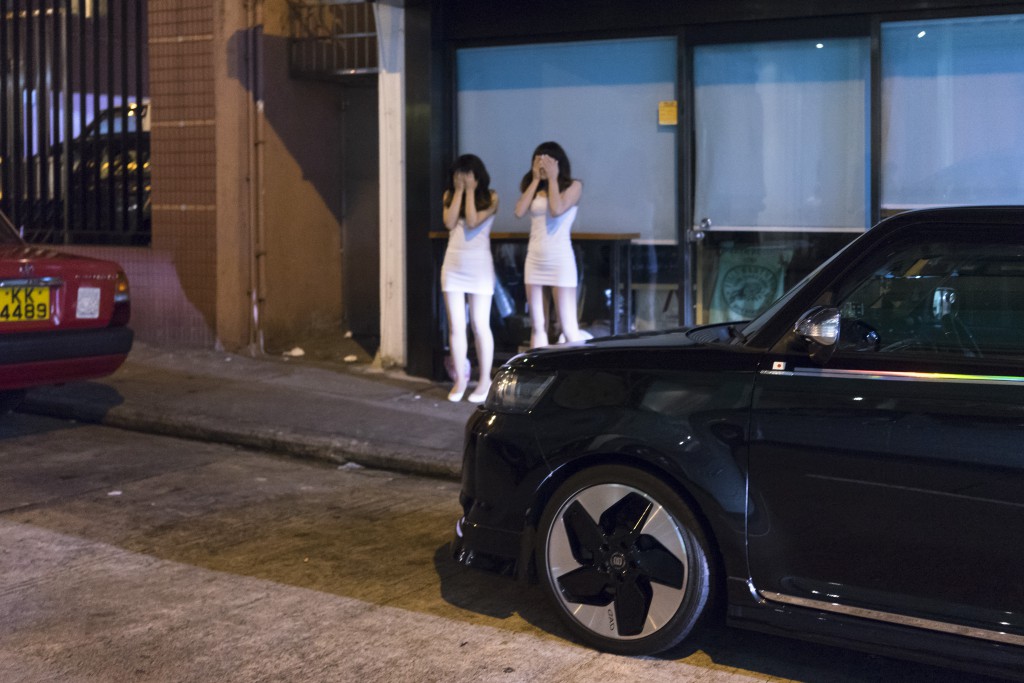
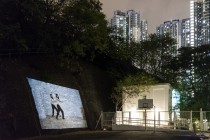
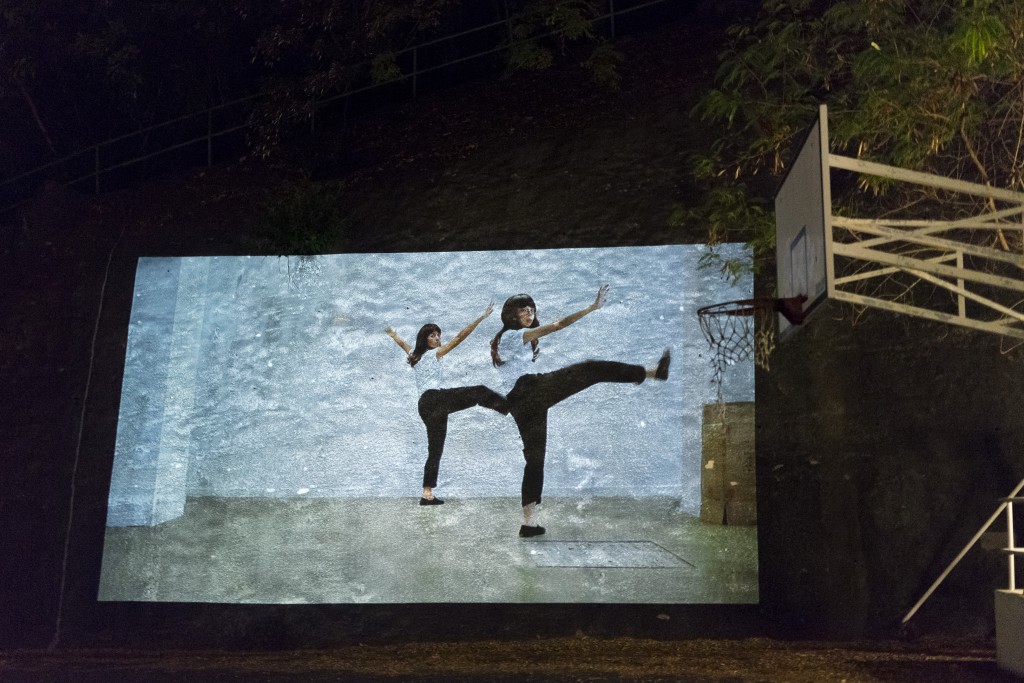
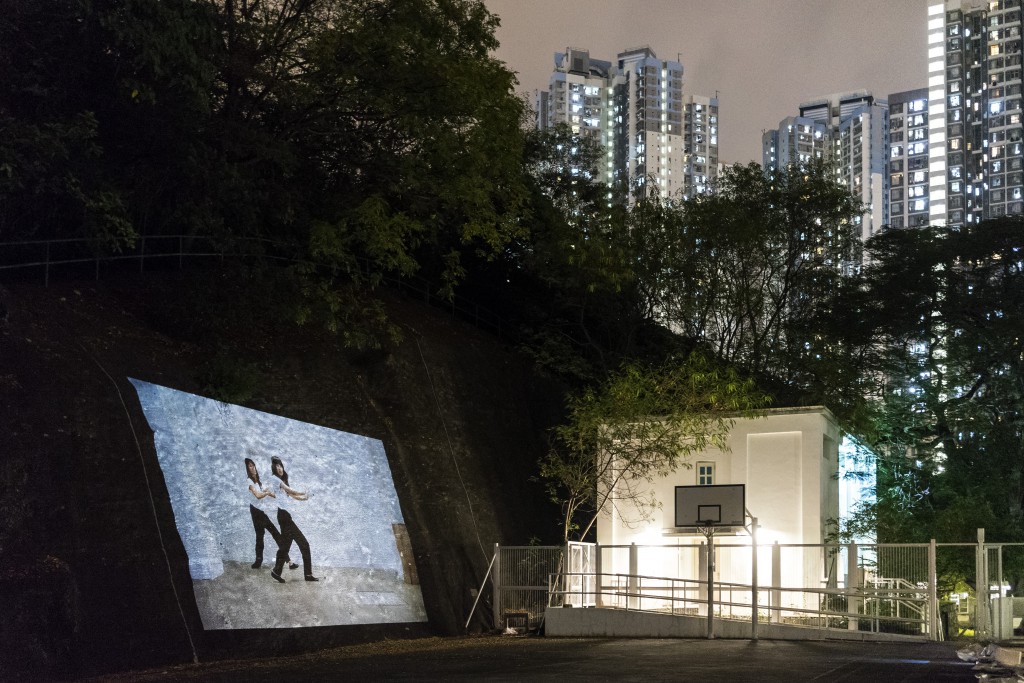
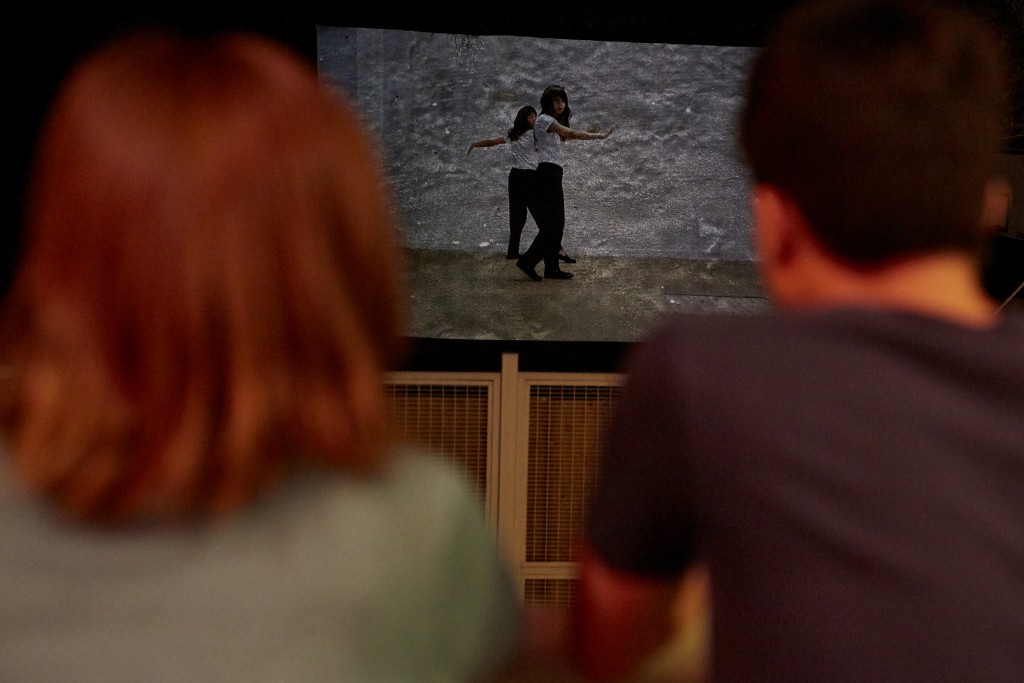
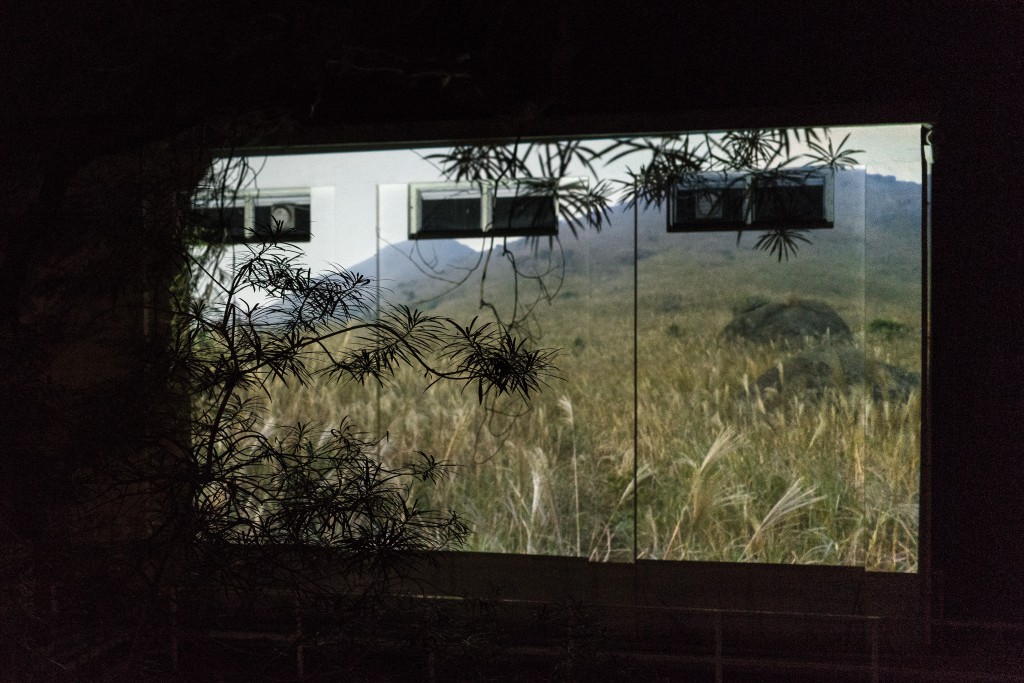
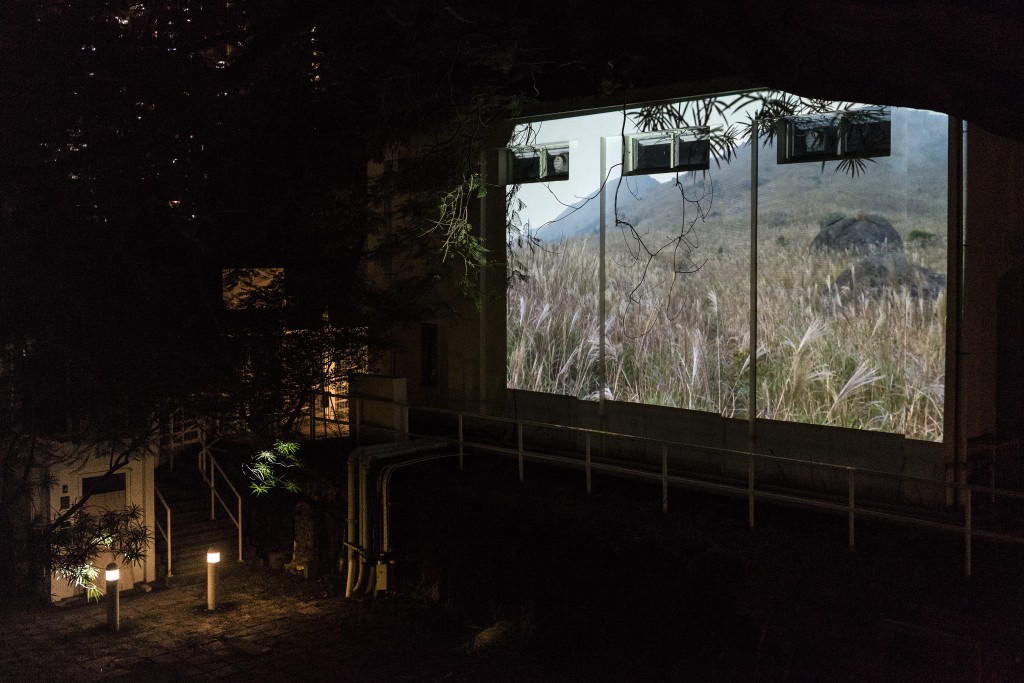
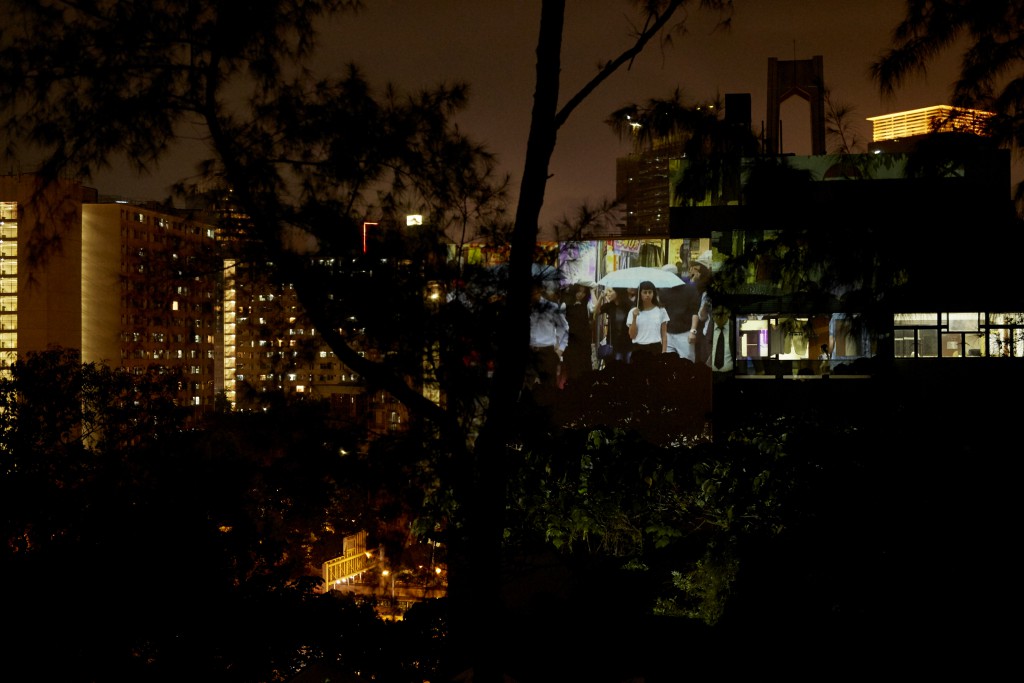
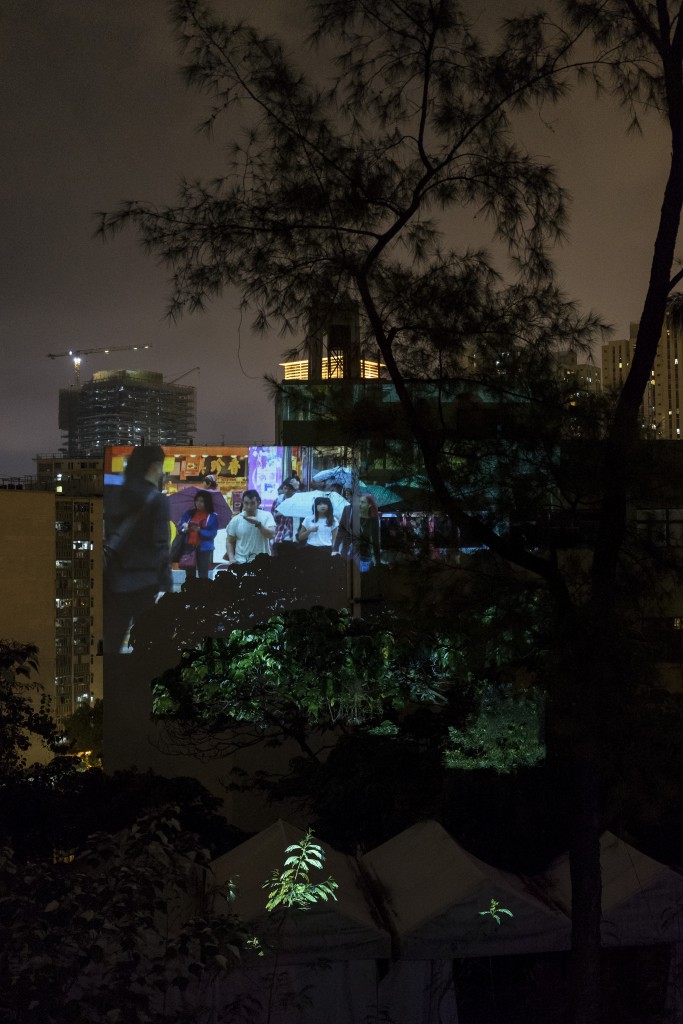
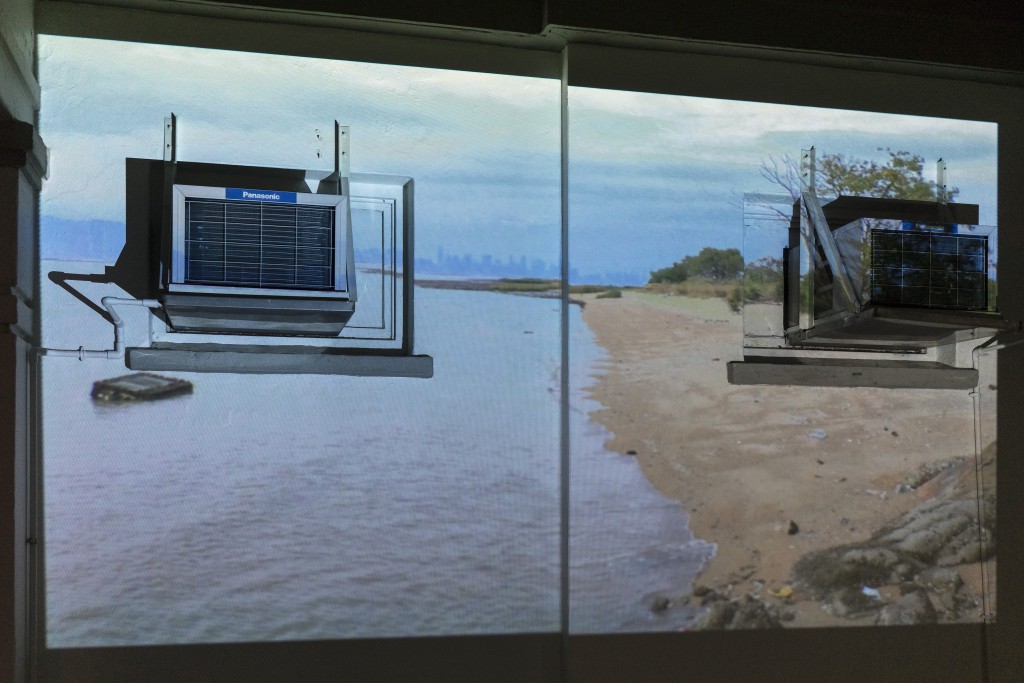
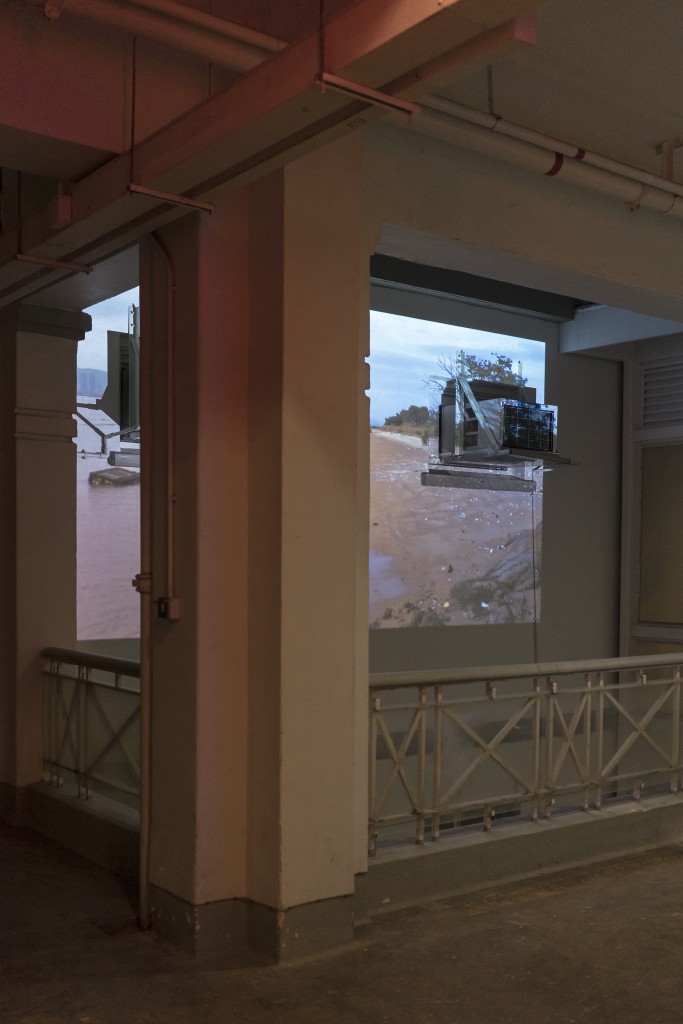
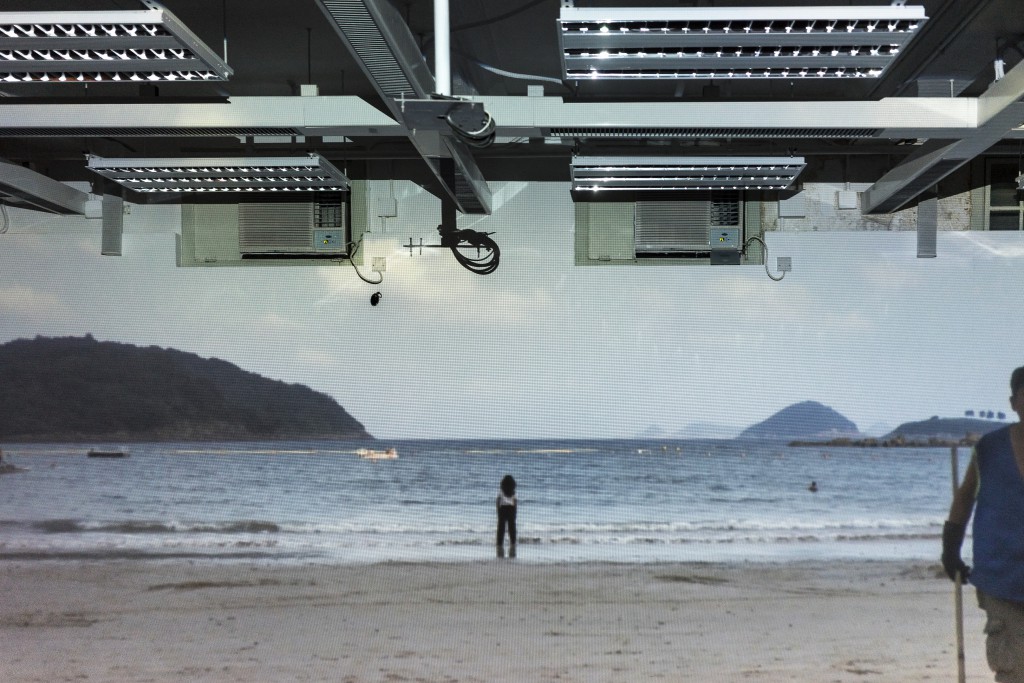
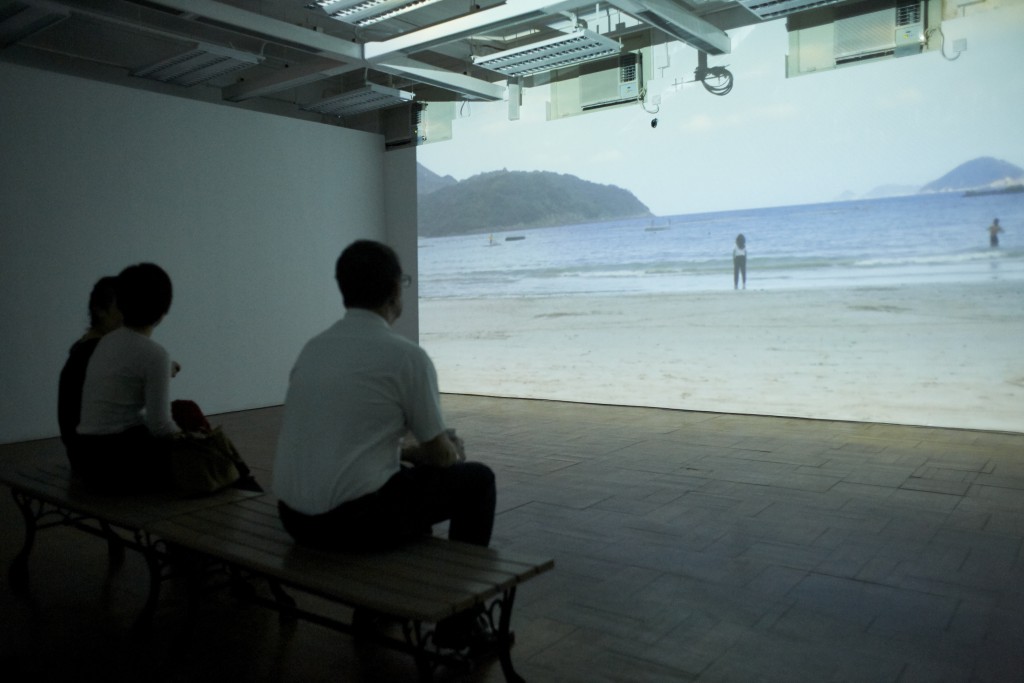
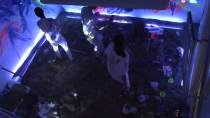

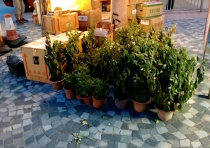
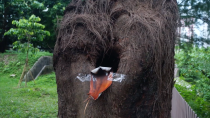
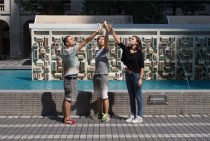
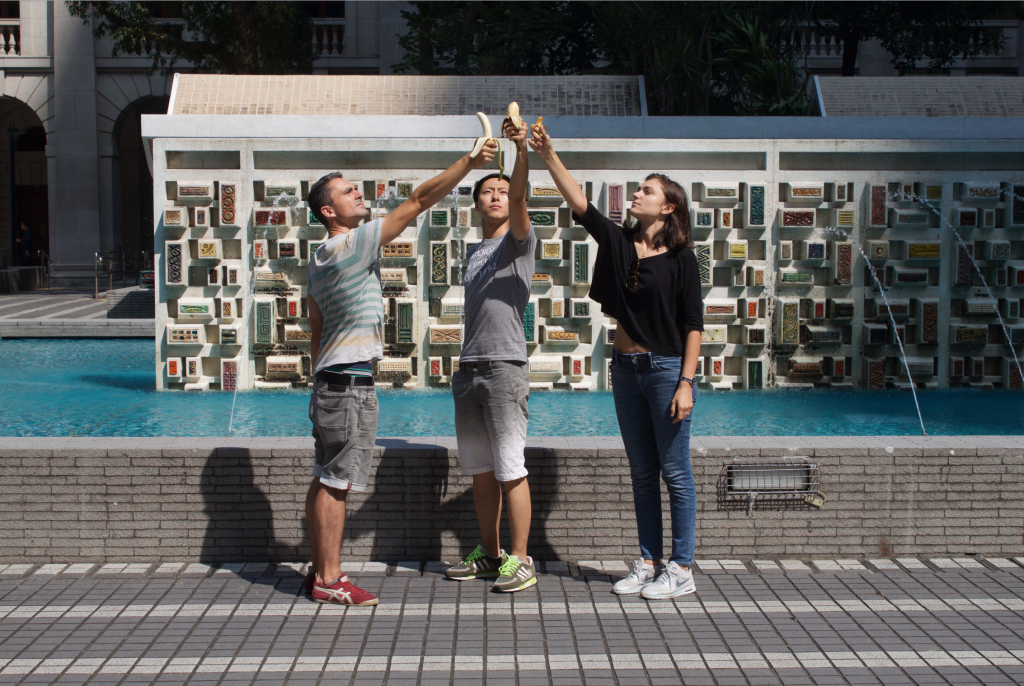
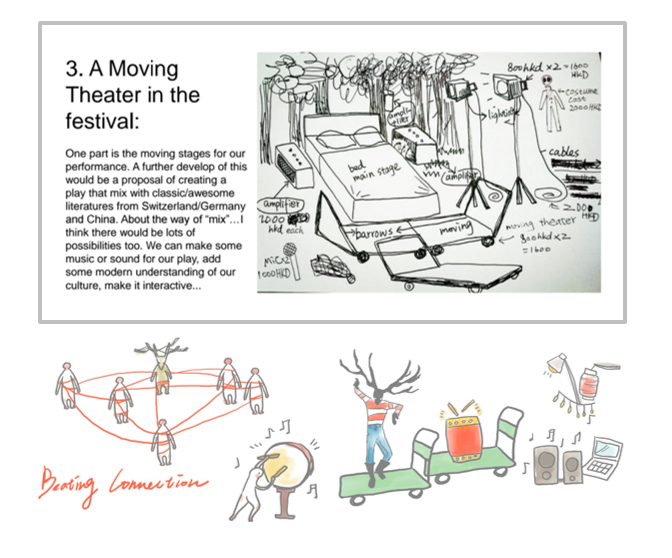
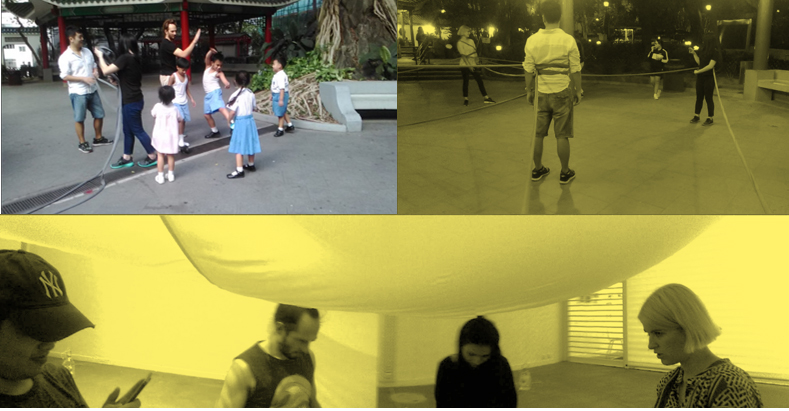
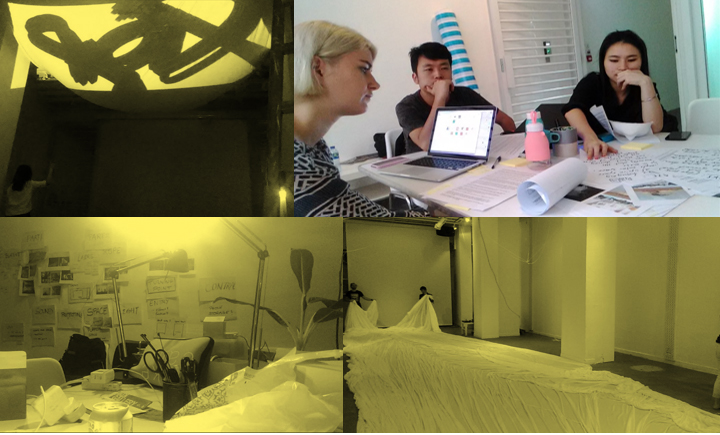
![Final. The Net[t] – Reactive Performance](https://blog.zhdk.ch/transculturalcollaboration/files/2015/11/IMG_7315-210x280.jpg)
